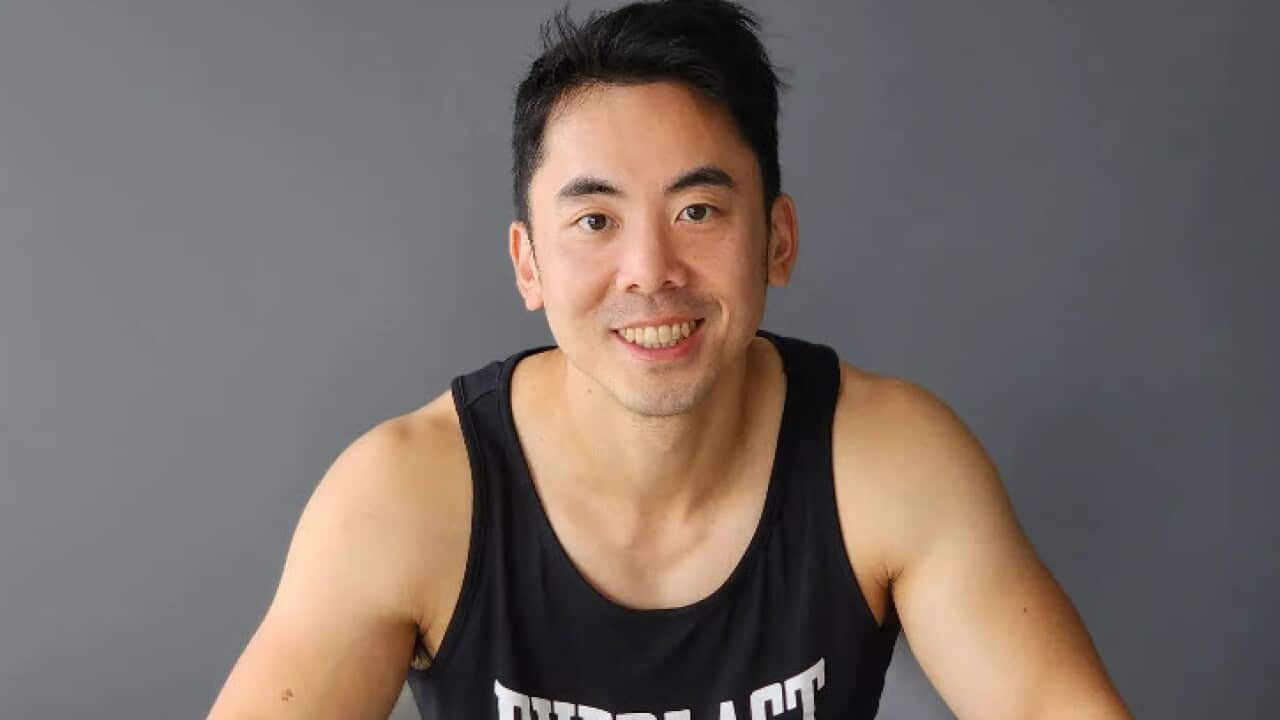Watch Insight's episode on Living Longer — and how to live both longer and better — on
On his mission to live longer, William Tam has taken tablets to manage diabetes and others normally prescribed to organ transplant recipients.
He has also taken a variety of vitamins and supplements ranging from ginger root to melatonin.
At one stage the 36-year-old father of two was popping 67 pills each day.
But William is neither diabetic nor an organ recipient.
“I want to keep living and live for, ideally, forever,” William told Insight.

William Tam's quest to live longer has led him to pursue a so-called Blueprint regime in which he takes up to 67 tablets each day. Source: Supplied
But some research on animals suggests the drug could also slow down the ageing process and help people such as William live even longer.
Rapamycin is only available in Australia with a doctor’s prescription, and Dr Hugh Leslie believes he’s one of only a handful of general practitioners in Australia who will prescribe the drug off-label for longevity purposes.
“People are possibly missing out on a drug that may help them, so I prescribe it for people who specifically … come to me and they've already done the research,” Dr Leslie told Insight.
“I’m pretty careful about testing them before they start taking it. And afterwards, we keep an eye on their blood work to make sure that we’re not doing any harm.”
As well as prescribing it to patients, the 62-year-old has also been taking the drug for the past six months in an effort to boost his longevity. He said he's noticed changes in his general fitness and weight training results, as well as improvements in his blood work.
“Asking me whether I feel better is not good evidence,” he said, stressing there have been no human studies on the drug’s effects on longevity though there has been "good scientific evidence" in animal studies.
People are possibly missing out on a drug that may help them.Dr Hugh Leslie
According to Dr Leslie, ageing is the biggest risk factor in diseases such as Alzheimer’s, diabetes and cardiovascular disease, and he would like to see medicine adopt a more preventative approach.
“One of the ways modern medicine deals with disease is to treat symptoms when they appear,” he said.
“The problem with most of the diseases of ageing … we know that these diseases really start many, many years, probably 20 years or more before we start to see the symptoms.”
A longevity protocol backed by Silicon Valley
William took rapamycin as part of a strict longevity regime he experimented with over two months called Blueprint. The diet, exercise and supplement plan was developed by 45-year-old Silicon Valley tech mogul Bryan Johnson, who is spending about $2 million a year trying to reverse his biological age in the hopes of restoring his body to that of an 18-year-old.
“If I keep following the Blueprint, I could become younger,” William said.

William is following a diet, exercise and supplement plan developed by Silicon Valley tech mogul Bryan Johnson that aims to slow the ageing process. Source: Supplied
He's also maintaining a rigorous exercise regime combined with daily saunas and cold showers.
“Most people think it’s quite extreme, and it’s not going to work,” he said.
“(But) I think it’s kind strange that people question it … when I was eating junk food no one cared …
"But (when) I’m doing something I think is better, and try and do it properly with supervision as much as possible, I get questions all the time.”
Can you balance a long life with a good life?
In 2021, Murray Warner’s life was turned upside down when aged 46, he suffered an unexpected heart attack.
“I was probably [at] my fittest [at the] time because we were locked at home [during COVID-19] and I'd been doing more exercise than I had in a long time,” he said.
“No family history of heart disease in the immediate family. (It was) completely out of the blue.”
After his near-death experience, Murray changed his diet and exercise to avoid it happening again, but he said the restrictive lifestyle and focus on longevity ultimately became too much.
“When I'd go into a social situation where there's a barbecue and some beer and red wine and ice creams … I would abstain, but I found that very stressful,” he told Insight.

Murray followed a restrictive diet after suffering a heart attack but said his focus on longevity ultimately became too much. Source: Supplied
“I still think I’m going to live to 103. I always have!”
William says as a child he’d always been “fascinated” about death, which eventually developed into a “kind of obsession with living for as long as possible”.
“I just love living. I enjoy life,” he said.
“People think it’s the opposite. Like, I must fear dying.
"But there’s none of that. I just enjoy life.”












